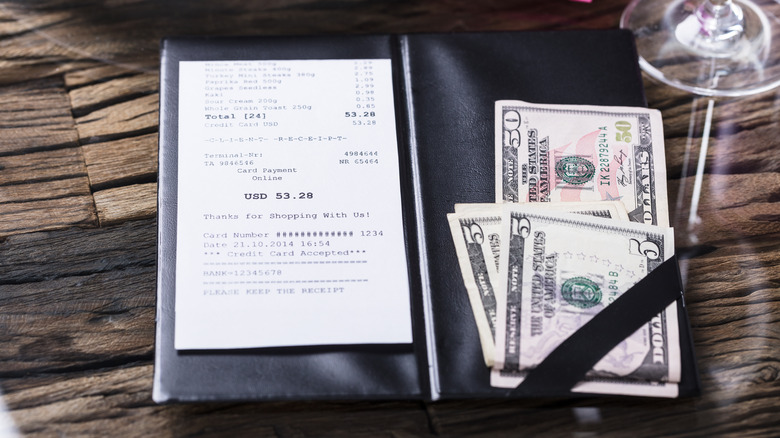A New Bill That Aims To Double Minimum Wage Could Shake Up The Restaurant Industry
Progressive lawmakers have re-introduced a bill that would more than double the minimum wage and phase out tipping rules in the U.S. The Raise the Wage Act, which was most recently introduced in 2021, was once again brought to Congress by Senator Bernie Sanders of Vermont and Representative Bobby Scott of Virginia. The legislation would raise the federal minimum wage from $7.25 per hour to $17 per hour over the course of five years, with an initial jump of $2.25 per hour three months after the bill's passage, and an additional increase of $1.50 per hour per year until 2028. Additionally, the bill would grant the Secretary of Labor the power to make annual adjustments to the minimum wage based on the cost of living, a move which would hopefully prevent minimum wages from stagnating as they have at their current rate since 2009 even as inflation has skyrocketed.
The second major provision of the bill would be to phase out the existing tip credit, which enables restaurants and other businesses with tipped employees to pay a sub-minimum wage to tipped workers – only $2.13 per hour federally — as long as they make enough tips on average hourly to make up the difference to the mandated minimum wage. Initially, businesses will need to pay tipped workers at least $6 per hour plus tips and would over time have to pay workers the full minimum.
Reducing reliance on tips
While the proposal to increase the minimum wage is popular — a National Employment Law Project poll in 2021 found 62% of Americans supported a $15 minimum wage — restaurant owners are less enthused. Owners have cited rising rent and wholesale food costs as well as a purported labor shortage as reasons the higher minimum would damage their businesses and lead to layoffs of over a million workers nationwide. While restaurant owners argue the elimination of the tip credit would decrease staff's take-home pay in the long run, the Center for American Progress argues that states that have already done away with tipped minimum wages. In fact, those states have reported a decrease in the wage pay gaps for females, teen workers, and minority employees.
If this bill were to pass, the impact would probably be higher menu prices. As Horizon Hospitality, a hospitality employment recruiting firm explains, the easiest adaptation would be for restaurants to increase prices or add a set gratuity surcharge — something some restaurants have already embraced. While this might lead to some sticker shock, it would likely not cause most consumers to pay more, and it would ensure more equity for workers. This sort of model already exists in many countries in Europe and Asia, where tipping is more of a small, unnecessary reward than a requirement, though it may take time for the deeply ingrained American tipping culture to adjust.

